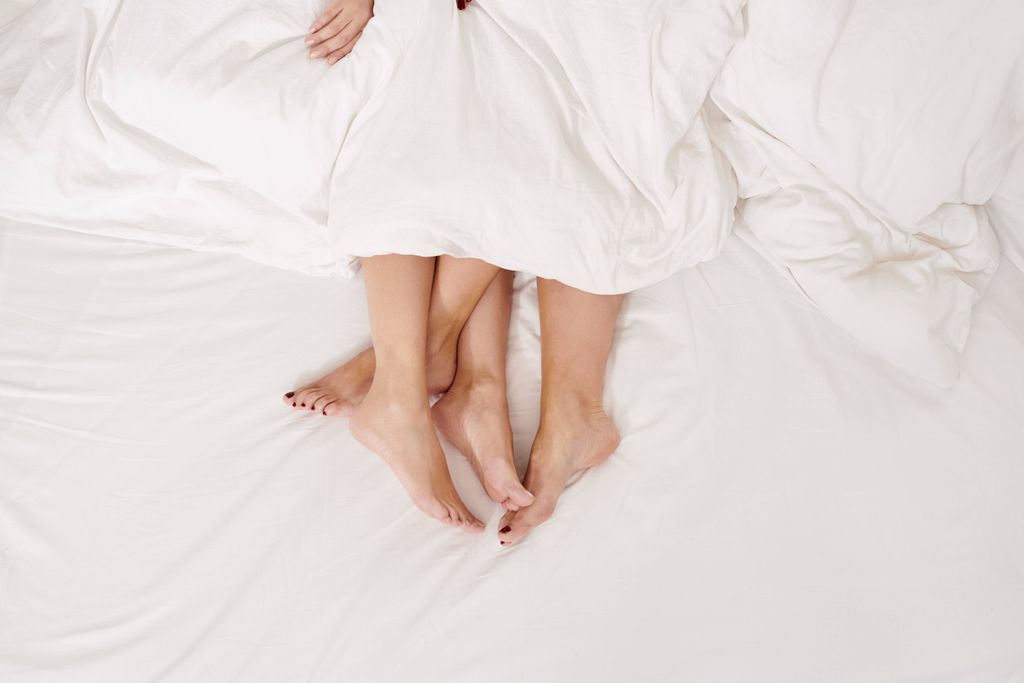Sex Addiction Treatment Center in Atlanta, GA
Sex addiction is the uncontrollable fixation on sexual thoughts, fantasies, and sexual behaviors. Mainstream media suggests that those with a sexual addiction constantly have sex with as many people as possible. But it isn’t limited to that. Sex addiction can also include prostitution, pornography addiction, masturbation, and nonconsensual observation of sexual activity. The Summit Wellness Group's Sex Addiction Treatment Center in Atlanta, GA can help you to overcome addiction and life's pressures.
The Summit Wellness Group is a mental health provider and has a sex addiction treatment center in Atlanta, GA. We aim to help you get your compulsive behaviors under control at our rehab center.
In this article
Dual Diagnosis Treatment Centers in Georgia (Metro Atlanta)
- Suicidal Ideation Treatment
- Obsessive Compulsive Personality Disorder Treatment
- Avoidant Personality Disorder Treatment
- Histrionic Personality Disorder Treatment
- Dependent Personality Disorder Treatment
- Acute Stress Disorder Treatment
- Relational Trauma Treatment
- Narcissistic Personality Disorder Treatment
- Attention Deficit Hyperactivity Disorder Treatment
- Sex Addiction Treatment
- Anxiety Treatment
- Depression Treatment
- Bipolar Disorder Treatment
- Post Traumatic Stress Disorder Treatment
- Borderline Personality Disorder Treatment
- Obsessive Compulsive Disorder Treatment
- Panic Disorder Treatment
Understanding the Facts about Sex Addiction
If you suffer from sex addiction, you are not alone. Up to 8% of U.S. adults have a porn addiction or sexual compulsions. Our sex addiction treatment center can provide appropriate treatment to help overcome addictive behavior.
Internet sex addiction impacts the lives of 2% of women and 4% of men. In 2019, more than 5 million hours of porn were watched. That means that 25% of the sites that people visit are porn-related.
Sex addiction isn’t limited to physical intimacy. It can include fantasizing with others in chat rooms, masturbating to images, sexting, and using sex toys online. Our support groups provide a safe space to discuss the varying ways sex addiction can present.
98% of people addicted to sex report feeling rejected by their partner. They turn away from their partner sexually because of feelings of betrayal, abandonment, isolation, loneliness, and humiliation. We sometimes don’t realize the implications of our actions on others.

What Causes Sex Addiction?
Sex addiction, also known as compulsive sexual behavior disorder, typically develops from a complex interplay of biological, psychological, and social factors. On the biological level, research suggests that irregularities in brain chemistry, particularly involving neurotransmitters like dopamine and serotonin, can contribute to addictive sexual behaviors.
Some individuals may be more genetically predisposed to addictive behaviors in general, which can manifest as sex addiction.
The psychological and environmental factors often play a crucial role. Trauma, particularly childhood sexual abuse or neglect, can significantly increase the risk of developing sex addiction later in life.
Other contributing factors include underlying mental health conditions (such as depression, anxiety, or bipolar disorder), difficulty managing stress or emotions, and exposure to inappropriate sexual content at a young age.
Some individuals develop sex addiction as a maladaptive coping mechanism to deal with emotional pain, low self-esteem, or feelings of inadequacy. Social factors, including early exposure to pornography, unhealthy relationship patterns, and cultural influences, can also contribute to the development of sex addiction.
Other Types of Impulse Control Disorders
- Compulsive Exercise: Prompted by images, messages, social media, and pop culture, individuals exercise excessively to meet these standards.
- Compulsive Hoarding: Individuals with compulsive hoarding find it impossible to let go of possessive and even garbage. Hoarding is typically onset by trauma and the need to not lose more in life than they already have.
- Compulsive Buying Disorder (CBD): When individuals develop CBD, they have an unstoppable urge to shop, even when it leads to financial distress.
- Excoriation Disorder: For some, excoriation can be a coping mechanism from time to time when they are nervous or anxious. However, this pathological skin-picking disorder is when a person repeatedly picks at this skin to the point of lesions and sores.
- Gambling Disorder: Constantly thinking about gambling activities, planning future gambling sessions, or reliving past gambling experiences are signs of gambling disorders.
- Internet Gaming Disorder (IGD): With access to the internet, apps, and gaming consoles that connect using wifi, the number of individuals becoming addicted to gaming continues to grow.
- Kleptomania: This impulse control disorder involves taking things everywhere you go. Kleptomania is the urge to steal, typically without regard for need or profit.
- Onychophagia: Commonly referred to as nail biting, onychophagia is repetitive and compulsive and typically seen in children and young adults.
- Pyromania: Pyromania is among the rarest impulse control disorders. Individuals feel a constant and intense infatuation with fire and deliberate acts of fire setting.
- Trichotillomania: This disorder is most commonly known as compulsive hair pulling. Individuals typically pull their hair to the point of noticeable hair loss in patches or the entire head.
Recognizing Signs and Dangers of Impulse Control Disorder
Recognizing signs of impulse control disorders runs parallel with identifying and seeking treatment for individuals struggling.
Here are some common signs and addictive behaviors to watch for:
- Difficulty resisting impulses
- Frequent engagement in impulsive actions, even with negative consequences
- Tension or anxiety before engaging in the behavior
- Feeling temporary comfort or satisfaction after the completing behavior
- Inability to control the behaviors
- Impact on daily life
- Emotional despair and humiliation after engaging in the behavior

Why Choose The Summit Wellness Group?
The Summit Wellness Group stands on a set of core values. Each of our treatment options and treatment plans is rooted in these values.
- To treat everyone with dignity and respect
- A fierce commitment to integrity through ethical and quality care
- Honest and open communication
- Practice self-care and personal growth
We are independently owned and operated. This gives our staff a say in policies, procedures, and treatment methods. We use this to our advantage, which means our clients receive personalized care specific to their goals.
Our mental health treatment center provides an experience unlike most people’s. Our luxury facilities have the highest-quality amenities, making your treatment comfortable and safe.
At the Summit Wellness Group, individuals can take control of their addiction while receiving varying modalities of behavioral health care to receive effective treatment.
The Summit Wellness Group offers the following evidence-based treatment programs:
Sometimes, our clients need more support. Our PHP works to meet those needs. This treatment plan provides intensive individual, group, and family therapy and support services for sex addiction. Treatment occurs daily, where patients return home in the evenings to fulfill personal and family obligations.
Our Sex Addiction Treatment Services
At the Summit Wellness Group, the primary forms of therapy for treating sex addiction include several behavioral health options. Our sex addiction services are rendered by licensed therapists, psychiatrists, and other mental health professionals at our treatment center.
- Individual therapy can involve several different methods. You and your therapist decide which works best for your treatment goals, and we then tailor the therapies to you.
- Group therapy is the chance to engage in community with your peers. You relate and encourage others while gaining self-awareness through shared experiences.
- Holistic therapies encompass your whole person, not specific parts. These therapies promote inner peace, mental health, body awareness, and self-discovery. These promote well-being, a vital aspect of early recovery. These holistic therapies enrich your treatment for the long term.
- Massage Therapy
- Guided Meditation
- Chiropractic Care
- Adventure Therapy
- Nutritional Classes
- Therapeutic Fitness
- Art Therapy
- Cognitive behavioral therapy (CBT) focuses on what our clients do that works outside of their sex addiction tendencies. This is done to build on these actions with the treatment team.
- Trauma-focused CBT addresses the underlying trauma that is often the cause of sex addiction. This form of CBT may be the most sensitive because it is tailored specifically to each client and brings up the experiences of trauma that led to developing a sex addiction. The therapist uses those experiences to inform how to approach personal and family relationships.
- Acceptance and commitment therapy (ACT) focuses on helping individuals develop psychological flexibility, which is the ability to adapt to changing situations and shift our clients’ perspectives when responding to challenges consistent with meeting each client’s individualized goals. When adding this approach to our client’s sex addiction treatment plans, we can better provide the tools to navigate life, manage stress and anxiety, and maintain positive social relationships.
- Mindfulness CBT, which uses elements of positive CBT, focuses on meditation to help clients consciously pay attention to their thoughts. Mindfulness identifies negative thought patterns that lead to anxiety, depression, and other mental health problems.
- Trauma-focused CBT addresses the underlying trauma that is often the cause of sex addiction. This form of CBT may be the most sensitive because it is tailored specifically to each client and brings up the experiences of trauma that led to developing a sex addiction. The therapist uses those experiences to inform how to approach personal and family relationships.
- Dialectical behavioral therapy (DBT) helps individuals participate in their own therapy. DBT combines CBT, mindfulness, and acceptance strategies. DBT teaches essential skills for managing emotions, impulsive behavior, and relationships. Individuals set goals, track progress, and make decisions about their treatment.
- Eye movement desensitization and reprocessing (EMDR) helps our clients process and overcome traumatic experiences. EMDR is based on the idea that unresolved traumatic memories are stored in the brain because individuals can experience distress and symptoms years after the event. EMDR involves a structured approach that includes identifying a target memory. Using eye movements, sounds, or taps, your therapist will activate the brain’s natural healing processes.
Support is Available
We encourage you or a loved one struggling with the symptoms of sex addiction to reach out for treatment options offered at our recovery center.
We encourage you to visit our Atlanta or Roswell locations. You can also call us at (770) 299-1677 or email us at contactus@thesummitwellnessgroup.com.
We’re Here To Help
Get help now
We’d love the opportunity to help you during this overwhelming and difficult process. Our sincere passion is helping people recover so that they can live full, meaningful, and healthy lives.
Call us 24/7 at 770-299-1677. If we aren’t the right fit for you then we’ll utilize our expertise and connections within the treatment industry to assist you in finding the best provider for your specific needs. Alternatively, you can fill out our contact form and a member of our staff will contact you shortly.
